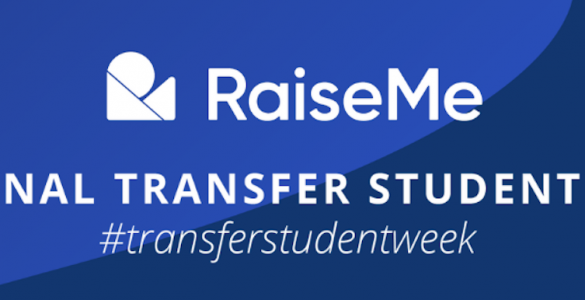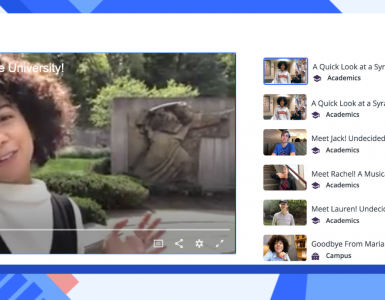Student Insights: Alaina Burke, University of North Florida ’21
Why I Hate Group Projects (and how I deal with it)
By Alaina Burke
I’m from the Tampa FL area, although I’ll be moving to Jacksonville in a few weeks to attend the University of North Florida. I’m planning on majoring in early education (PreK-3rd grade) and am considering a minor or double major in something else as well (Humanities or Psychology are possibilities). I took Dual Enrollment classes at a local community college throughout High School, so I’m glad to have a little college experience (and a few credits) under my belt before getting started at UNF this fall. I love reading, especially classic literature; and art, both studying it & doing it.
I’m a good student. I really am. I usually earn straight A’s & B’s and I always get homework in on time. Academics usually come easily to me, and I have good study habits. Strange as it may sound, I actually find a certain enjoyment in writing a research paper.
But.
I have an arch-nemesis. That thing that I just hate. It gets me every time. It’s called the Group Project. When I hear the words “group project” or “collaborate” come out of a professor’s mouth, my heart begins to race, my blood boils, and I generally go into an all-out panic, collapsing to the floor in hysterics.
Okay, not exactly.
But you get the picture. I hate, hate, HATE group projects. Unfortunately, they seem to be a favorite among high school teachers and college professors.
But please, allow me to share my own group project experiences, and a list of the things I have learned from them. I hope it will open your eyes to the reasons I hate collaboration so much, and warn you of the dangers that come with group projects. Perhaps it will also help you improve your own group project experience. And if there are any sympathetic college professors out there reading this, perhaps it will encourage them to remove the group project from their class syllabus this year.
Although I have had to do many, many other group projects both before and after, my worst experience by far was in my American Government class. We were assigned a semester-long project which involved going as a group to volunteer at a local charity of our choice, gaining 8 service hours each, and then giving a presentation at the end of the semester to the rest of the class about our experience. What that had to do with American Government is beyond me. All I know is that the whole thing was a fiasco.
I love community service. I am all for volunteering. In fact, it happens to be a passion of mine, something I enjoy doing on my own. However, it does not lend itself well to becoming an assigned project for a group of busy, irresponsible college students.
Now to give you an accurate picture of the situation: I was actually a sophomore in high school, taking this college-level American Government course through a Dual Enrollment program at the local community college.
And somehow, perhaps because I am the straight-A student that I am and I wasn’t willing to let the project fail (like some of my classmates obviously were), I ended up being in charge of organizing the whole project.
I was all of 15 years old. And my 18-25 year old classmates couldn’t bother themselves enough to call up a local soup kitchen and see if we could come volunteer a couple of times in the next few weeks. They didn’t do it so I, unwilling to risk my own grade, had to do it myself. I also had to work with all 8-10 members of our group to figure out a date and time that would work best for everyone. And then I had to deal with picking another date that worked for all of us, when the woman at the soup kitchen emailed and told me she had accidentally double-booked groups for our day and could we work it out to come some other time instead? And I was the one who decided when we would meet after class to work on our presentation (and then only three of us showed up). And I was one of the only ones (along with the 2 others who had attended the meeting) who actually spoke a significant part of our presentation while most of the other group members stood there silently alongside us. Thank goodness one other member of our group agreed to put together the PowerPoint that would accompany our report because otherwise I’m sure I would have had to do that too.
In the end, we all got a good grade, thanks to my hard work, and I vowed never to participate in another group project again.
Because that’s the problem with group projects. Coordinating several busy college students’ schedules to work on the project is difficult. Nobody knows who’s supposed to do what. The good students stress themselves out doing all the work and the lazy students get good grades because of it.
Of course I couldn’t really never do another group project. The next semester brought new classes, new professors, and new group projects. As did the semester after that, and the one after that. And once I graduate college, I’ll have to collaborate on projects with my coworkers. The group project is unavoidable, and so I’ve had to deal with it over and over again.
However, I have learned a few tricks that have significantly improved my more recent group project experiences. Here are some tips that have helped me (and will help you too!):
1. Pick good group members! If possible, pick people to work with that you know are good students, who actively participate in class, and won’t dump all the work on you. Sometimes professors will assign groups themselves, but if they let you choose your own partner(s) choose wisely!
2a. Communication is key. I can’t emphasize this enough. Meet as a group at least weekly, even if it’s only for 10-15 minutes after class every week.
2b. Also find a way to communicate outside of class. Create a group chat online. Some colleges’ online learning platforms have capabilities for discussion forums. There is also a broad variety of apps, such as Google Hangouts, WhatsApp, GroupMe, or Slack that you can use to create a group message board. Or you can simply create a group text. Just find whatever works for you and your group. This way when you’re at home working on the project and a question pops up, you can consult with your fellow group members right away.
2c. Google Docs is amazing. You can create a document and share it with the rest of the group, allowing each member to write, edit, and comment on others’ work, all in the same place. Use it.
3a. Figure out what needs to be done and then split the work evenly. Everyone gets a part. You have to write a 12-page research paper? Split it into segments and have everyone write few paragraphs. You need to give a presentation to the class? Have everyone contribute a few slides for the PowerPoint. Giving a speech? Each person stands up and speaks for a few minutes. And make sure you keep track of who’s supposed to do what and what’s been done and what hasn’t yet. That way you don’t end up with 2 group members doing the same thing twice while another part of the project is completely forgotten.
3b. Do your fair share of work! If everyone does his own part, the project will be fantastic. If you forget to write that paragraph or do that PowerPoint that you promised you’d do, your whole group will suffer and your fellow group members will hate you for the rest of your life.
4. Be professional. Everyone will have their own idea of how the project should go. Respect your other group members’ ideas. If you do nothing but argue over the project, it will never get done. Be willing to compromise.
You may also like

National Transfer Student Week 2020: Celebrate With RaiseMe!
Join RaiseMe in celebrating National Transfer Student Week October 19th-23rd. This is a week to celebrate our students, connect them with resources, and to...

Students — Earn Micro-scholarships For Taking Civic Action This Election
This fall, more than 80 colleges and universities on RaiseMe are offering micro-scholarships to community college and high school students for civic engagement...

NEW: Peer Into College Life With CampusReel Videos on RaiseMe
Now on RaiseMe, you can watch videos created by real students to get a true sense of college life and find out what schools are right for you.

